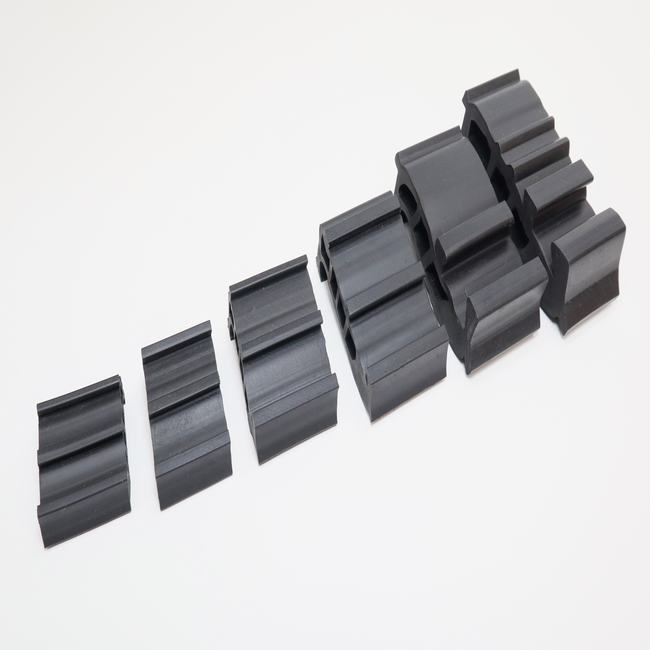Concrete pipe seals, also known as pipe gaskets or concrete pipe joint seals, are specialized sealing components designed for use with concrete pipes. These seals are crucial for creating watertight and secure connections between concrete pipes in various applications, including wastewater systems, stormwater drainage, and culverts. Here are some key features and applications of concrete pipe seals:
Features of Concrete Pipe Seals:
- Material Selection: Concrete pipe seals are typically made from durable and resilient materials like rubber, elastomers, or thermoplastic elastomers (TPE). These materials provide the necessary flexibility and sealing properties.
- Sealing Mechanism: These seals are designed to create a watertight seal between the spigot (male end) and the bell (female end) of concrete pipes. The seals are compressed when pipes are joined, ensuring a secure connection.
- Profile Variety: Concrete pipe seals come in various profiles, such as O-ring seals, gasket seals, and compression seals. The profile type depends on the specific application and design requirements.
- Customization: They can be custom-designed to fit different pipe sizes and profiles, ensuring compatibility with a wide range of concrete pipe dimensions.
- Chemical Resistance: Concrete pipe seals are often engineered to resist chemicals and substances commonly found in wastewater and drainage systems to prevent degradation over time.
Applications of Concrete Pipe Seals:
- Wastewater and Sewer Systems: Concrete pipe seals are extensively used in wastewater and sewer systems to create watertight and leak-free connections between concrete pipes, preventing the infiltration of groundwater or the exfiltration of sewage.
- Stormwater Drainage: In stormwater management systems, these seals ensure that rainwater flows efficiently and without leakage through the concrete pipe network.
- Culverts: Culverts, which are used to channel water under roads, railways, or other structures, rely on concrete pipe seals to maintain the integrity of the culvert system.
- Utility Tunnels: Concrete pipes and seals are used in underground utility tunnels for various purposes, including the passage of cables, conduits, or utility pipes.
- Irrigation Systems: Concrete pipe seals are also used in irrigation systems to prevent water loss or leakage from pipes.
- Infrastructure Construction: In the construction of bridges, tunnels, and other infrastructure projects, concrete pipe seals play a vital role in ensuring the proper functioning of drainage and water management systems.
- Custom Projects: Concrete pipe seals can be applied in custom projects where watertight sealing of concrete pipes is required.
In summary, concrete pipe seals are critical components in various infrastructure and construction projects, ensuring that concrete pipes maintain a secure and watertight connection. Properly installed concrete pipe seals help prevent environmental contamination, maintain water flow efficiency, and extend the service life of concrete pipe systems. Their versatility and compatibility with different pipe sizes make them essential in a wide range of applications involving concrete pipes.





